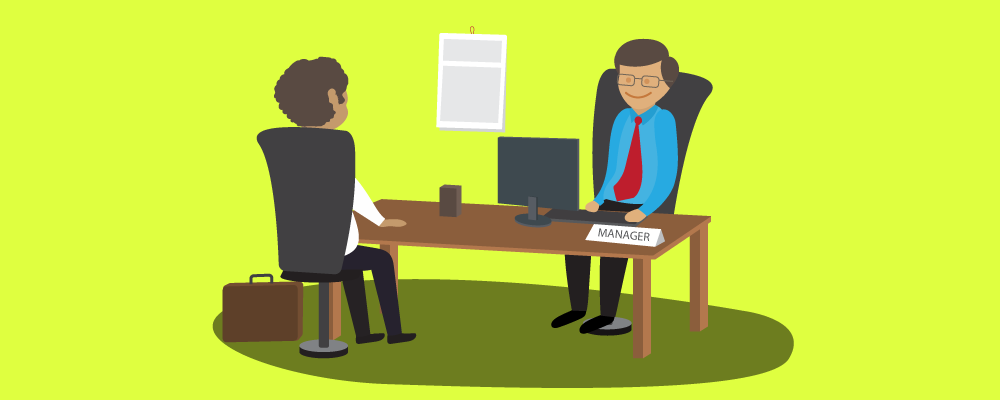
Design credits: Rakesh Mohan
Like it is for most of us, owning a home of his own was a long-cherished dream of Rohan’s. Thanks to a promotion and salary hike, he realised that his dream was about to come true. If he took a Home Loan, he would be able to buy a house and pay it off within five years of being promoted to the new role. Everything was going as planned but then tragedy struck when his company went bankrupt.
Rohan lost his job and hefty pay cheque. His finances were in a mess. He soon realised that his house was now beyond his means and the EMIs were turning into a nightmare. He took an additional Personal Loan to clear his monthly debts and pay his Home Loan EMIs. This further worsened things. He now had to pay the EMIs on his Personal Loan as well! He soon found himself entrenched in debt.
Something like this could happen to any of us. But don’t worry; there are ways out of it. So, what are your options if you are unable to pay your Home Loan?
Don’t panic
“Don’t Panic…Be Cautious” is the basic mantra in such a situation. Missing one or two Home Loan EMIs, though not advisable, won’t put you on the defaulter’s list right away. It’s only when three consecutive EMIs go unpaid that a legal notice is sent to you by the bank. This is done after sending a few reminders to you to make your payments. If the non-payment of EMIs continues, the bank is likely to recover the loan amount by selling your property which is mortgaged to them.
If your lending bank is convinced that the EMI defaults occurred because of circumstances beyond your control, they will try to provide you with options, keeping your circumstances in mind. Reach out to your bank to find out what different options are available and then take a call. Remember, banks always prefer a recovery of the loan to a legal proceeding.
Ask for a moratorium
Banks could defer repayments on loan by allowing a grace period in case of a genuine problem like loss of employment, critical illness, loss in business, etc. Banks will check your repayment track record and give you options for repayment. Although you may have to incur late payment charges, it’s definitely better than losing your mortgaged property or house.
Ask for a restructuring of your loan
If you are facing a stringent financial crisis, you can always ask your lending bank to restructure your loan. Restructuring your loan means rescheduling your loan repayment by lowering the EMI amount or extending the loan tenure. This option is provided by banks so that the borrower does not become a defaulter in the long run.
Check with your insurance company
If you have any Medical or Health insurance cover, check with your insurance company if it is possible to withdraw some money or get a partial payment. You could possibly fund a couple of EMIs with this amount. There’s no harm in checking with your insurance company.
Investment aid
What’s the point of having investments in Mutual Funds, equities, Fixed Deposits or other savings, if they can’t help you during a rainy day? Check if any of your deposits are nearing maturity so that you can withdraw them, though you might incur a minimal pre-closure charge. If you have any, you can also check if your stock investments are performing well in the market. If they are, you can sell the shares and get some money to make your payments. It’s always good to have some sort of saving as a back up to help you out in circumstances like this.
Credit Counselling Centre
Many banks and other institutions offer credit counselling services to help you get out of a debt trap. Counselling can help you manage your finances and arrange for alternatives. The consultants can provide guidance to help you come up with an effective Home Loan repayment procedure. You can visit these counselling centres for advice on financial planning and to get a better understanding of your options.
Last option
In a worst case scenario, your new house may have to be sold in order to repay the bank debt. If that’s the case, ensure that you find a good price for your house. The sale should not only help you repay the debt but, should also leave you with a bit of extra cash at your disposal.
Conclusion
Having to sell your dream house to repay your bank debt isn’t ideal so, here’s what you can do to do to be more financially prepared and avoid ending up in such a situation.
- Take a loan keeping in mind your repayment capacity.
- Avoid high interest rate loans. Do a proper analysis of Home Loan interest rates before taking a call.
- Make a proper financial plan which makes provision for your monthly expenses.
- Avoid impulse shopping and overspending when you have EMIs to pay.
- Maintain an emergency fund which can support your Home Loan EMIs (or any monthly payments) for at least 5-6 months.
- Invest in small-term investment options so that you can withdraw money or close these in case of an emergency.
Buying a house is a commonly cherished dream for most of us. But if you are planning to buy a house with Home Loan financing, make your calculations carefully before taking the loan. Remember, non-payment of Home Loan EMI’s will have a negative impact on your CIBIL Score as well.
